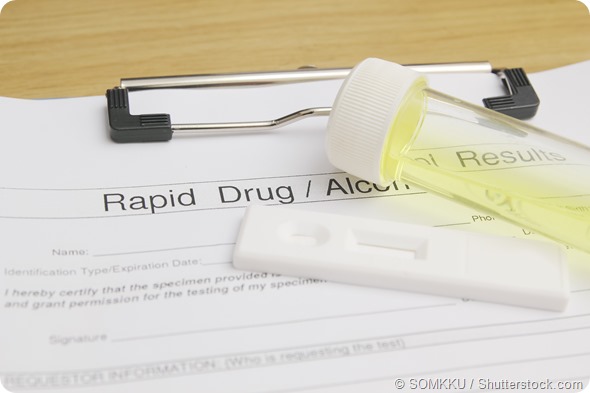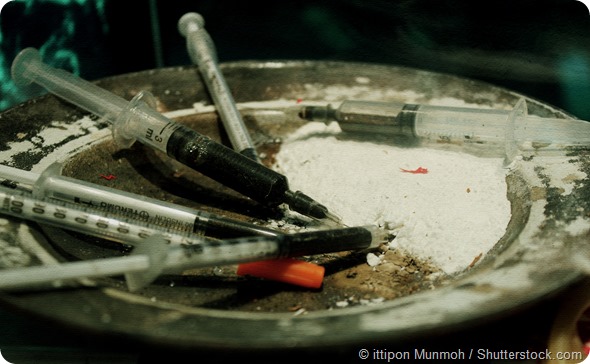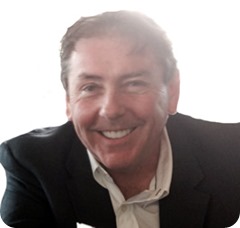In the US, drug and alcohol testing has been a part of addiction and recovery for as long as I can remember.
I started working in the business, basically in the employment industry, back in the mid-to-late 90s. Testing was essential, in that industries needed to ensure they had alcohol- and drug-free work places.
Around 2000 to 2001, I started getting involved in the addiction and recovery industry. It's an important tool in monitoring compliance and adherence to a program, without which you're just going to be making guesses.
A lot of people say to me that they're not really interested in looking at drug testing or that they have a pre-disposition about it because it violates privacy and fosters a negative approach to treatment.
They'll say they've been in the business for a long time and can tell when somebody is using. Although professionals treating patients in recovery may have a keener sense to spotting drug and alcohol use there is no way to confirm use without some hard clinical evidence and data.
Drug and alcohol addicts are a group of individuals who are very astute when getting around detection, whether they’re intoxicated or not. Testing is an important tool in discovery, treatment and monitoring of the disease. We find that it’s a key piece of treatment.

What challenges do treatment centers face due to the complex nature of recovery?
I think there is a little bit of a difference between the UK and the US. I think in the US, it's really a situation that drug monitoring is well accepted, with most people who are in recovery realizing that they will have to be tested. It's a little bit more of a mature industry over here than it is in the UK.
I think in the UK, there is the ever present issue of people feeling their privacy is being invaded. This is not a privacy situation. Laboratories are not trying to invade privacy or publish anything about patients that would affect their everyday life. Labs simply produce data to help plan treatment. That's what the industry is about, it's a data driven industry.
We only put numbers out. We don't look at who it came from, where it came from or the type of test it is. We just develop data for the counselors and doctors and find a way to treat patients.
In what ways can Summit Diagnostics help addiction and recovery centers?
We're a company that looks at working with ethical organizations around the world to help build programs to educate medical professionals that treat addiction and do so in an economical and effective way.
Our industry has had some bad press over the last couple of years due to laboratories abusing systems and trying to overcharge patients insurance. We've never taken the concept in that way.
We want to go in and work with these individual practices to determine what the best type of testing program is for them, what makes sense for them and what the best way is to get it through to the patients. We don’t even call our programs drug testing, we have coined the term Routine Medication Monitoring and feel this term is more accurate with our mission.

It is important that we look at medical necessity to treat the patient for what they are addicted to. Testing helps medical professionals determine the problem and then prepares a way to treat the problem.
As with most diseases, your physician would perform a battery of tests to determine if you have the disease, extent of the disease and then would develop a treatment plan. Addiction is a disease no different than any others and needs the same consideration when diagnosing.
Patients then realize that they're going to get the best possible outcomes and maintain their dignity at the same time.
We're not trying to hurt anybody; we're trying to help people and I think Summit does a good job of that. We have a number of locations around the US and our goal is to push into Europe, with the overall goal of having a consistent treatment protocol
How has innovation and technology impacted upon drug testing and the rehabilitation market over the past decade?
It has changed tremendously. When I first started, there was basically only one way to do a test and that was with an immunoassay.
An immunoassay would be a screening device is like an instant test cup or a tabletop analyzer that would analyze a specimen and determine whether a drug was present or not, but it wouldn't specify what drug or type of drug was there.
The best analogy can give for the results of an immunoassay is that if you tell a friend you’re going to Wembley Stadium and the friend wanted to know where you were sitting, you couldn’t tell them. Immunoassay can only tell you a class of drug present not a specific drug.
For example you could have a positive opiate but you wouldn’t know if it were Heroin or poppy seeds from a bagel! This result could have a tremendous impact on a recovery plan or present legal implications.
Confirmation is a much deeper science and helps distinguish what actual drug is present. Going back to the analogy above using lab confirmation technology you could tell your friend that you were in Wembley, what section, row and seat and probably what you had for dinner.
This is important for medical professionals to help them determine what medications their patients are on and taking correctly and which they may be taking without consent.
In many cases it’s quite innocent, multiple physicians prescribing medications and not knowing what each is being prescribed. Self-medicating is a problem as well. These tests help distinguish what’s present and what may not work well together. Adverse drug reactions are a big problem.
Do you work at all with clinical trial companies to check participant compliance?
Not necessarily on clinical trials, but in the US, when pain care medicine really became prevalent in about 2004 and 2005, we started seeing a number of big issues and a lot of problems.
An even bigger problem was diversion – when somebody obtains a medication, but doesn't necessarily take it and instead sells it on the street. It's a huge problem for the US because you've got people selling drugs that were prescribed under the premise of resolving a problem like a pain issue or depression.
Medications sell at a premium on the streets and are a gateway to more illicit drug use. This is where the drug testing industry started having an important place in the market. “Doctor shopping” became popular and diversion rampant.
What insights have Summit diagnostics been able to draw from their other specialty services to the addiction and recovery market?
I very recently saw a great article about pregnant women who use marijuana. The statistics show that marijuana is more of a gateway drug than previously believed. It was not the only drug that the women use and was instead only one of many drugs they use. If you're doing that during pregnancy, obviously there's going to be some adverse effects on the baby.
The US, has a big concern about this and with state legalization of marijuana, is a hot topic in political circles, since we are not sure of the long term affects that marijuana will have. We do know that statistics show that people starting younger are more prone to start using other drugs.
I think it's really important to have leaders from each side of the ocean get together and talk about how to work cooperatively to tackle these issues and look at addiction uniformly.
Currently, how do treatment protocols in the US differ from the UK?
As far as testing goes, it’s much more widely accepted in the US than in the UK, partly because of the National Health Service. I’m not sure testing and treatment are as aggressive and clarified as in the US.
In the US, most insurance companies will pay for this type of testing and also government programs do pay for it, although now it's becoming more and more limited, but that’s okay.
We're trying to get a reasonable testing protocol based on medical necessity for each patient that takes into account many variables. These variables include type of testing, how to test, when to test and frequency of testing.
I think in the past that's been the biggest problem: labs have had protocols that say you should test for every drug that's out there, three or more times per week. That is completely unnecessary and not what we like to see. There are ways to moderate and cost contain while still obtaining valuable treatment data.
What changes do you think are needed to these protocols?
I think there needs to be a real dialogue between leaders of the US, the UK and the rest of Europe to talk about this ongoing problem of drug abuse.
At this point, it's at epidemic proportions in almost every country. We see new drugs popping up all the time. Just in my hometown, we've had two overdoses in just the past few weeks and we're talking about a small little town in New Hampshire. We’re seeing really dirty drugs coming over from Eastern Europe, drugs that we never expect to see here.
There is a worldwide connection to the drug problem. I do think there is a way to treat drug abuse on an international level that would be consistent from place to place. I think that's a better way to attack this problem. We need to start attacking the problem with children at a young age through education and cut the demand off.

What do you think the future holds for drug and alcohol testing?
It's unfortunately an endless market. As long as the supply is there and the demand is there, we're going to have addiction problems. Our company is looking at how we treat people and how to do so with compassion while preserving dignity.
We consider this absolutely to be a disease of epidemic proportions and I think that medical professionals on both sides need to look at this and find a way to put together a cohesive policy to treating that disease. Routine Medication monitoring is an amazing and essential tool in developing data and ultimately a care plan for people suffering from this disease.
We need to put our minds together and bring treatment testing together, with a set protocol that will work and enable the job to get done.
What are Summit Diagnostics plans for the future?
We're very interested in the European market. We've looked at some sites in London and are actually looking at putting our first laboratory over there. We're very excited about the potential of doing that.
We obviously want to get together with the thought leaders in London and talk to them about what they need, what they want and what they're going to get out of a laboratory there.
We do think that we can work cooperatively over there, with a number of the big leaders in rehab and recovery and also in the physician market. There are people that want to look at this policy, this program, and see if we can implement it together.
Really, our goal is simply to put together a great policy that works across the board to help people get well and we spend a lot of time in the recovery business.
We see a lot of people that have been on the really bad side of things and have still been able to get them completely back. I saw somebody who had been a life-long drug addict for 55 or 56 years make a complete recovery, so there is hope.
It doesn't matter what age people are, we don't give up on anybody. There is always hope out there and that's what we do. We work with people who want to get clean and help them to do so.
Where can readers find more information?
About George Powell
George Powell is the CEO and Founder of Summit Diagnostics. He has over 30 years in the clinical testing business in both products and services. George Serves on the boards of a number of laboratories and has expertise in lab start up, compliance, production and partnering with labs to assure compliance and cost containment. He is an avid supporter of the Recovery effort locally and internationally.